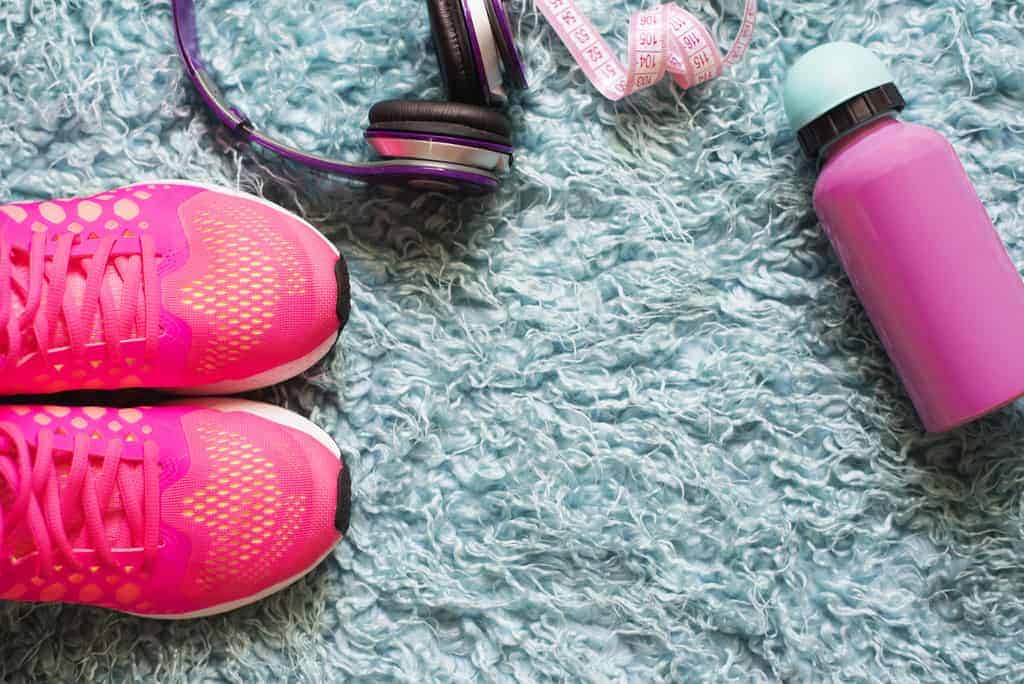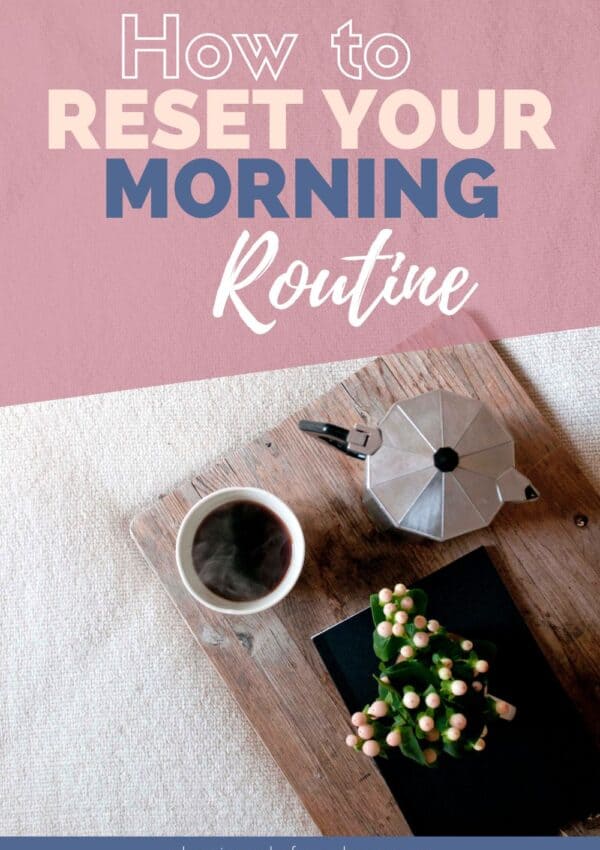
A new year is the perfect time to think about creating new habits. And a new decade even better. Or so I thought. If you’re anything like me you may have started 2020 with grand ideas of overhauling your life. Lose some weight. Get fit. Become super organised and efficient in every way. You know the kind of thing. And, of course, starting on January 1st will make it all magically happen right? Except by the second week of the year you realise that, yet again, nothing has changed and you are back to your old ways, feeling totally deflated. If this sounds like you then maybe you need to try these ways to build a new habit and make it stick.
Statistics suggest around 80-90% of new year’s resolutions fail. Therefore you are much more likely to fall back into old habits than you are to create new ones. So, how can you give yourself a better chance of being in that 10-20% who manage to make their new habits stick?

10 ways to build a new habit and make it stick
Try following my top 10 tips for creating a new habit and making it become a natural part of your lifestyle.
1 Focus on one new habit at a time
One of the most common reasons habits fail is because people try to change too much in one go. You are much more likely to succeed if you make small changes.
Decide on an area of your life you want to improve. Find something you can do every day and make it your absolute priority to focus on that one thing until it becomes second nature. Only then can you think of adding another habit.
2 Commit for a minimum of 30 days
Experts say it takes around 21 days to make or break a medium complexity habit. The length of time varies from person to person, but one month feels like a reasonable goal to aim for.
Make sure you plan time every day to get your habit done. By repeating it daily you have a greater chance of success as it is harder to get something to stick if you only do it once or twice a week.
3 Find a trigger for your habit
Link your new habit to something you already do.
For example, think –
- Straight after work I will work out
- I’ll always cleanse my face after brushing teeth
- The first thing I do when I wake up will be….
- I will drink a glass of water with each meal
- After dinner I will plan tomorrow
Find something you already do every day and add it to that so it happens without you having to think. Or decide on a set time of day to get it done.
4. Start small
Don’t say you are going to do 1 hour of exercise a day when you currently do none. It will be too much of a change to commit to and you will end up giving up within a week.
Instead start small with something you know you can do even when you don’t feel like it.
- 5 minute walk
- 1 extra glass of water
- Wake up 10 mins earlier
- Tidy one area
When you have managed this for a month you can start building on it, feeling good that you’ve managed to achieve something. Don’t increase something until it has become a natural part of your day.
You can also split goals into sections throughout the day (2×10 min walks, meditating, reading, etc).

5. Plan for obstacles
Think about what sort of things might prevent you from completing your habit on certain days.
Common excuses for putting off your new habit could be
- Bad weather
- A long day at work
- A particularly bad day with the kids
Make provisions for what you will do in these cases otherwise it will be too easy just to use them as an excuse to give up. If the weather is bad do a workout DVD at home instead. If you find yourself too tired to work on a project after a long day at work get up a little earlier and complete it in the morning.
6. Make yourself accountable
Tell other people what you are going to do. Create a tracker in your journal or a chart to put on the wall. Use an app to track your progress. Find an online community to keep you accountable and offer encouragement.
You won’t want to fail if other people know what you are trying to do.
Also by marking it on a tracker or calendar you will find you don’t want to break the chain and will have a visual reminder of how far you have come.
You could also try making yourself a vision board or printing an inspirational quote to spur you on.
7. Reward your achievements
If you have something fun or exciting to look forward to when you have reached your goal it will help you to stick to your routine.
Ideas could be –
- a nice workout outfit
- a new book
- a night out
Celebrate your achievements and make the reward bigger the further you get.
8 Don’t give up if you slip up
If you do have a bad day let it go and don’t give up. Get straight back on track the next day. One slip up will not make much, if any difference to your over all goal. Giving up with an all or nothing approach definitely will though.
9 Design your environment to encourage you

Think of little ways you can change your home to help you with your new habit.
- Don’t have food in view to tempt you.
- Put a book where you sit in the evening so you can easily pick it up.
- Lay your workout gear out ready for the morning or when you come home from work.
- Put the remote away in a drawer so it’s harder to automatically switch the TV on.
- Don’t keep your wine/beer chilled.
10 Think of the benefits
Research and write down some benefits of your new habit.
Think of a new outfit you could wear when you lose weight. Imagine all the energy you will have as you get fitter. How will you feel when you’ve learnt a new skill?
Similarly, what are the consequences of not doing the habit.
By following these steps, success with your new habit should be much more likely. Think of a goal that is important to you. Break it down into smaller, easily achievable habits. Plan when and how you are going to implement these habits so they become a way of life. And don’t forget to reward yourself when you reach your goals.




Leave a Reply